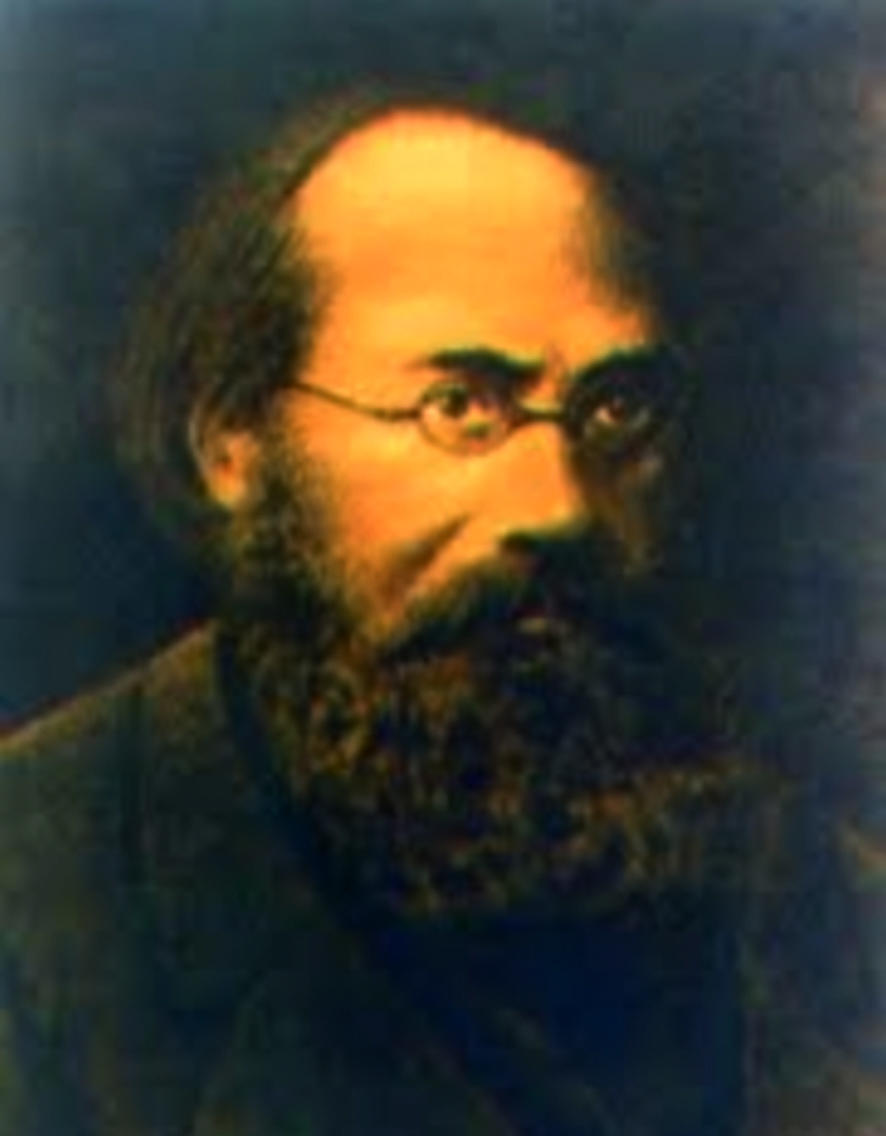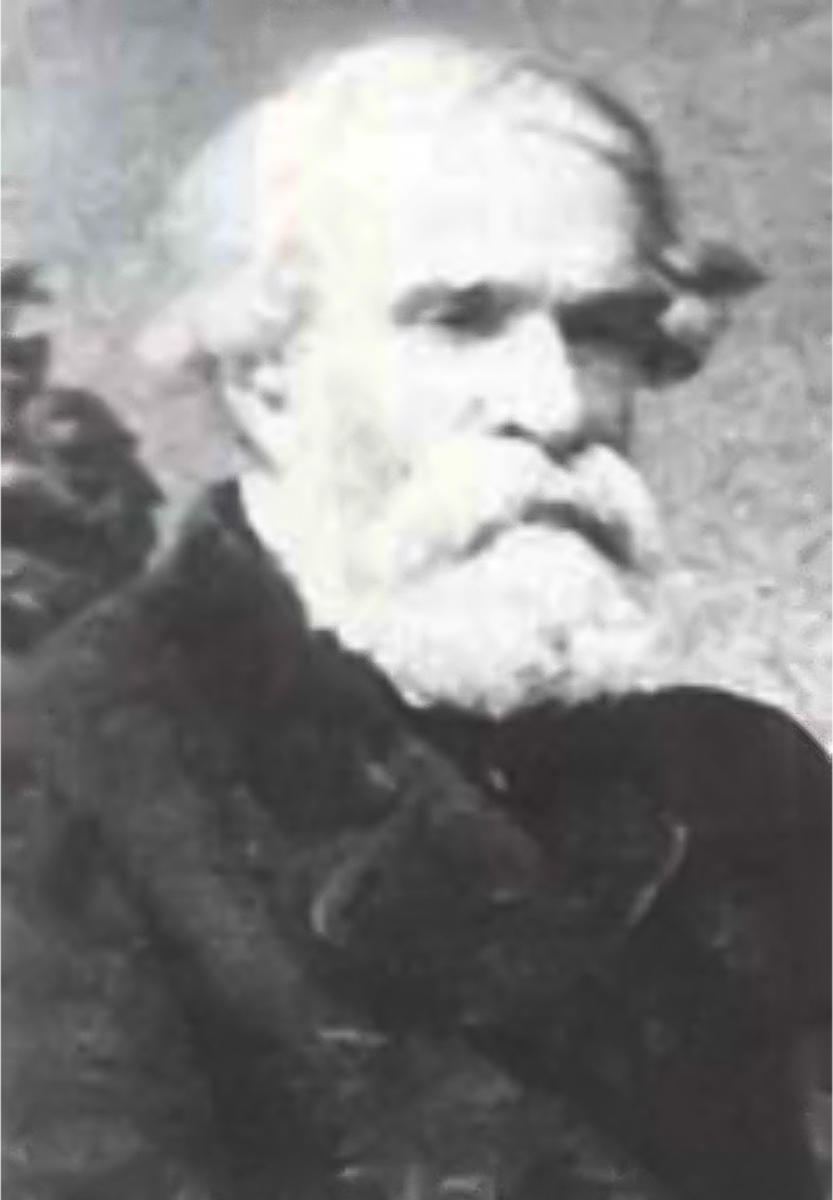God's Scribe Servants
Jakob Lorber
(1800-1864)
Who was Jakob Lorber?
 Jakob Lorber was born on July 22, 1800, on the left bank of the River Drau amidst vineyards, in the
Village of Kanischa and parish of Jahring, where his father, Michael Lorber, labored on a small farm.
Jakob Lorber was born on July 22, 1800, on the left bank of the River Drau amidst vineyards, in the
Village of Kanischa and parish of Jahring, where his father, Michael Lorber, labored on a small farm.
It was not mere coincidence that Jakob Lorber grew up in an impoverished rural environment, though in a home open to art and religion. He inherited from his father his many-sided musical talents, receiving instruction on the violin, piano, and organ.
By the time he attended the gymnasium (high school) in Marburg, Lorber had earned the necessary tuition money as an organist at one of the local churches. He received his accreditation as a high school teacher in 1829, in Graz, Austria, capital of the province of Steiermark. At that time, however, he could not find appropriate employment. This prompted him to continue his musical studies, which consisted of composing, teaching the violin, providing singing lesson, and giving an occasional concert.
During these years, Jakob Lorber followed his inclination and immersed himself more deeply in the spiritual "Path to the Innermost." He read, among others, the writings of Justinus Kerner, Jung-Stilling, Swedenborg, Jakob Böhme, and Johann Tennhardt. The Bible, however, was his constant companion and remained his principal source of inspiration until the end of his life.
Despite his many abilities, he lived from hand to mouth, until he was finally offered a position as conductor of the Opera in Trieste. It was just as he was about to accept this position that he received his appointment as "God's scribe." On March 15, 1840, right after early morning prayer, he heard a voice in his heart which very clearly ordered him: "Get up, take your pen and write!"
He abandoned all travel preparations, and obediently sat down to write what the mysterious voice dictated. It proved to be the introduction to his first work, The Household of God (Die Haushaltung Gottes): "And thus the good Lord speaks to everyone; and this is true, faithful, and certain. Whosoever wishes to speak to Me should come to Me, and I will place the answer in his heart. But only the pure, whose hearts are full of humility, will hear the sound of My voice. And whosoever prefers Me to all things and to the world, and loves Me like a bride loves her groom, with such a person I will walk arm in arm. Such a human being will for all times look upon Me as one brother would look upon another, which is how I have looked upon him from eternity, before he existed."
From the hour of this first dictation by the Lord, the unexpected and unheard powerfully entered Jakob Lorber's life. During the twenty-four years that followed, he wrote almost daily for many hours without interruption, neither consulting any books of reference nor otherwise having any prior experience of the voluminous knowledge which flowed from his pen through the Inner Word. His life was fulfilled solely in obedience to this Inner Voice.
One would have to speak entirely in superlatives in order to capture the essence of Jakob Lorber. If we consider him as a literary man, then he surpasses all other authors, poets, and thinkers throughout history. Where else can one find such comprehensive wisdom B interpretations of such depths, or such accurate knowledge of geography, history, biology and natural science, even unto the creation of the cosmos? His major works fill twenty-five volumes of 500 pages each, not counting his other smaller volumes. And if we consider him as a mystical genius, he surpasses all other initiates of whom we have knowledge. No words can encompass him; and if he called himself "God's scribe," that was only his own humble self-assessment.
Jakob Lorber died on August 24, 1864. His mission was accomplished, and he had foreseen his own death. On his tombstone at St. Leonhard Cemetery in Graz, the apostle Paul's words are written: "Whether we live therefore, or die, we are the Lord's."
Results of his Work
Gottfried Mayerhofer
(1807-1877)
Who was Gottfried Mayerhofer?
 In the seventh year after Jakob Lorber's departure, Gottfried Mayerhofer received the Lord's first dictation in Trieste in March 1870 in the continuation of the New Revelation.
In the seventh year after Jakob Lorber's departure, Gottfried Mayerhofer received the Lord's first dictation in Trieste in March 1870 in the continuation of the New Revelation.
Born in Munich as the son of an officer, Gottfried Mayerhofer also embarked on a military career, but also lectured on mathematics, played music, composed and trained in landscape painting.
When the Bavarian Prince Otto became King of Greece, Mayerhofer volunteered as a major for his personal suite and thus came to Greece. There he married the daughter of an Athenian merchant, Aspasia of Isay.
A few years later, his father-in-law moved his trading company to Trieste, and at the insistence of Aspasia, who was very attached to her father, Mayerhofer resigned from his military service at the Greek royal court and the whole family moved to Trieste. However, as Greece did not pay pensions abroad, Mayerhofer no longer had a fixed income; in order not to be completely financially dependent on his wife, he now devoted himself intensively to landscape painting using the numerous sketches he had brought back from Greece.
Gottfried Mayerhofer became acquainted with the New Revelation through his acquaintance with the Graz military doctor Dr. Waidele, who had belonged to the close circle around Jakob Lorber in Graz and then continued to eagerly copy Lorber texts in Trieste; and to help spread this "New Light", which inspired him, he also began to copy Lorber texts (mostly from Waidele's handwriting). In this way, Mayerhofer was also spiritually awakened and prepared to become an instrument of the Lord.
Through Dr. Waidele, Dr. Medeotti, a naval doctor from Trieste who had been seriously ill for years, was also led to Lorber and, after a successful application of Lorber's sun cure, also became an ardent follower and apostle of the New Revelation.
Around this time, the future publisher of the New Revelation and founder of the Lorber publishing house in Bietigheim, Christoph Friedrich Landbeck - who had always been preoccupied with the mystical side of life - was also working in his learned profession as a sign painter in Trieste, in the same workshop where Gottfried Mayerhofer had the frames for his oil paintings made. In the spring of 1870, the then thirty-year-old Landbeck made the personal acquaintance of the "old major", who gave him the small Lorber book "The Fly" and also won over his new young friend, who at the time was still "searching for the keystone of his world view", to the "New Light".
A solid bond was now forged between Lorber and the initially still small Trieste community.
During this time, Gottfried Mayerhofer had contracted an eye ailment from writing in the evenings and often at night - because daylight belonged to painting - and had to have cataract surgery. As a result, Landbeck decided to give up his sign-painting and put himself entirely at the service of the Lorber community in Trieste. He now wrote according to Mayerhofer's dictation and magnetized the Lord's sick eyes every day so that they would not get worse. In between, Landbeck also visited and "served" Dr. Medeotti's patients.
In March 1870, Gottfried Mayerhofer received a proclamation from the Lord for the first time, and in the following seven years until his departure on Good Friday 1877, he wrote the two large cycles of the "Secrets of Creation" and the "Secrets of Life" as well as the unique collection of the 53 "The Lord's Sermons" for all Sundays of the church year, in addition to numerous occasional words.
Regarding the process of inspiration and writing, Landbeck reports in his memoirs that Mayerhofer was usually first allowed to mentally see what he wanted to describe as if in a living picture or as a panorama in magnificent clarity when he awoke; these visions then faded as he later wrote them down in an uninterrupted flow of pencil. Gottfried Mayerhofer was also often given the opportunity to see the spiritual man behind the natural shell. Landbeck also testifies to Mayerhofer's "gift of healing, a blessing to many".
When the first publisher of the Lorber writings, Johannes Busch in Dresden, had completed the printing of the entire work of St. John in 1877 (at that time already an eighty-four-year-old old man) after seven years of work and was in dire financial straits, Gottfried Mayerhofer stepped in to help and save him, who had started painting again despite his sick eyes in order to raise funds for Dresden. Three oil paintings by Mayerhofer are still in the possession of the Lorber publishing house in Bietigheim as evidence of his labor of love for the New Revelation work.
The texts of Gottfried Mayerhofer's two natural science and spiritual science cycles, the "Secrets of Creation" and the "Secrets of Life" - some of which were prompted by oral or written requests - were already highly topical in their time and have remained so to this day.
It was the era of the almost explosive development of all scientific disciplines; science believed itself to be on an unparalleled triumphal march, one invention followed another, reason and with it materialism celebrated triumphs. However, everything that was not directly or at least experimentally accessible to the five human senses was negated and was not sought after.
From this spiritual situation of the late nineteenth century - which is gradually beginning to change in our present day, but is still predominantly oriented towards a purely materialistic world view - we understand the tireless urgency with which the Lord, through Gottfried Mayerhofer, has revealed to us the spiritual dimensions of all living things in ever new aspects and profound explanations, bringing us proof of how "nothing at all" is the matter in which man, in disregard of the divine order of being, has buried himself, indeed has already buried himself in a spiritual sense today.
May the word of the Lord, which has been given to us through Gottfried Mayerhofer in these texts, be understood as a true gift of grace for our time and now finally be heard and heeded far and wide, so that "the old, long-forgotten, shattered edifice of spiritual human life may be rebuilt"!
H. E. Sponder